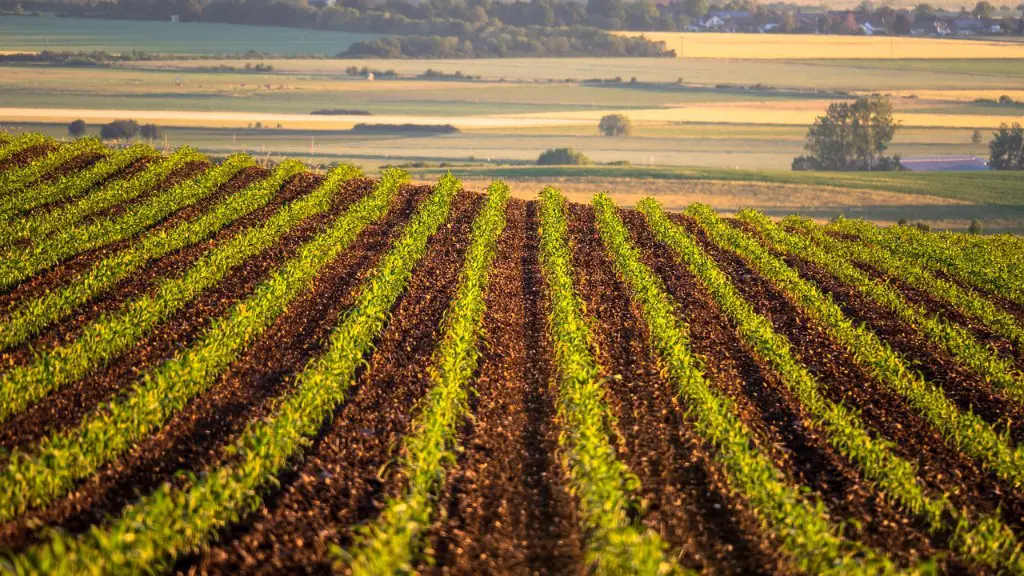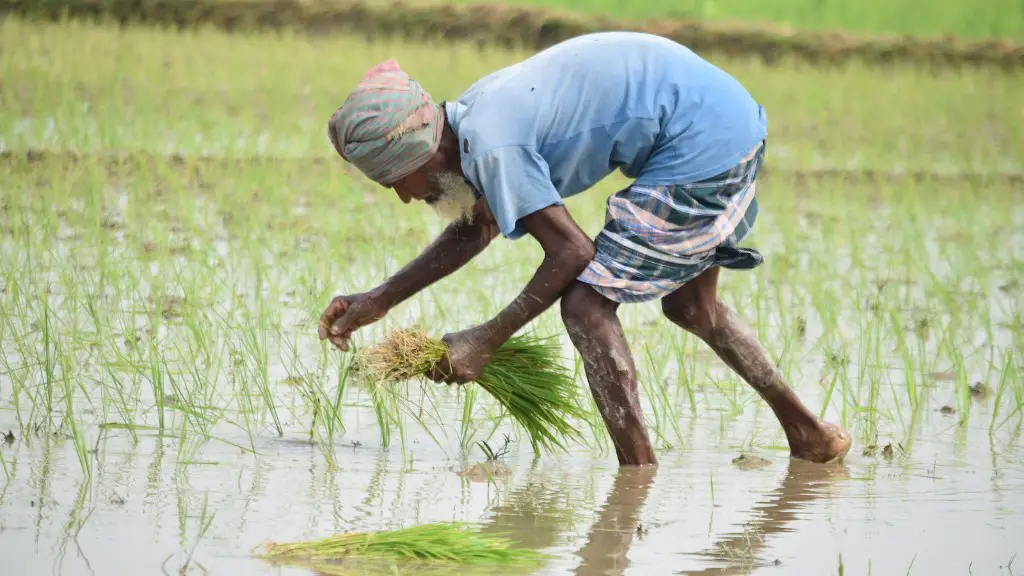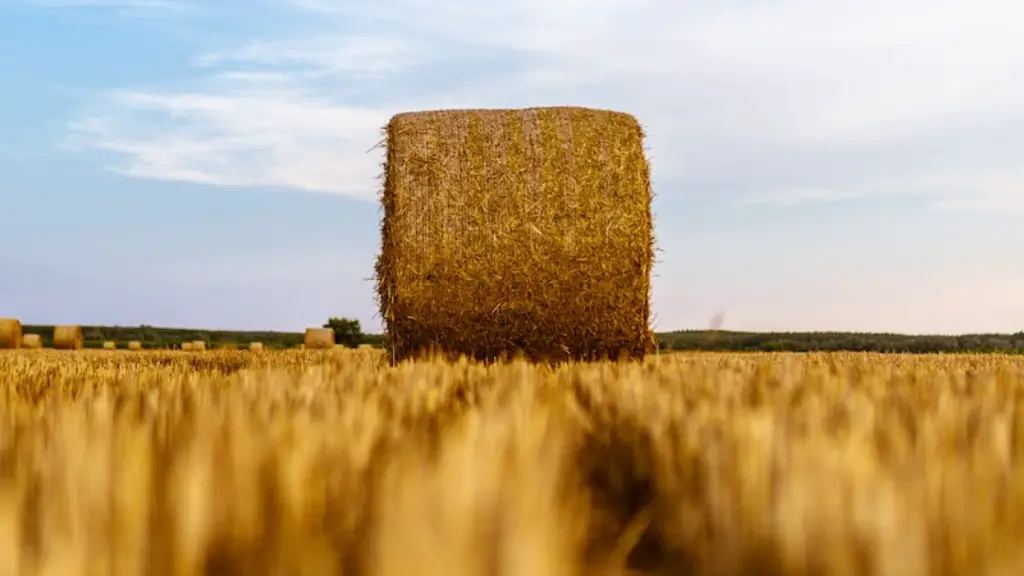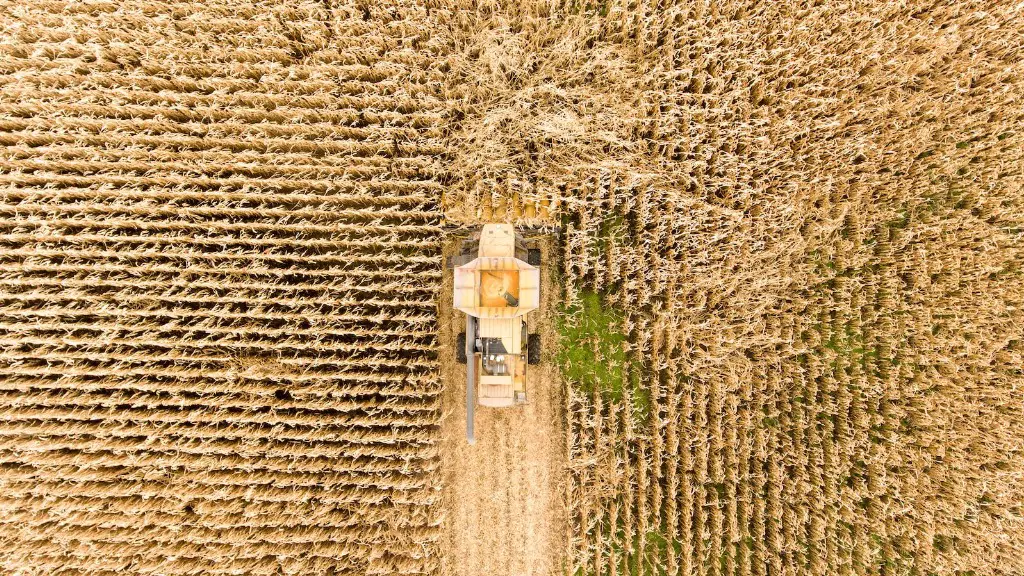Agriculture plays a major role in human life today. It enables the production of food, clothing, fuel, and more. But humans were not always agricultural. Early humans were hunter-gatherers who relied on their wits, physical abilities and the environment around them to survive. So, how was the discovery of agriculture useful for early humans?
For starters, agriculture gave early humans access to a larger and more consistent food supply. Before agriculture, hunter-gatherers had access to only certain types of foods throughout the year, depending on their local environment’s resources. With agriculture, early humans were able to practice crop rotation and selective breeding to encourage different plants to grow in their environment. This allowed them to have access to a wider variety of food throughout the year, meaning that they had a larger and more consistent source of nutrition.
Agriculture allowed early humans to begin to settle down and build communities and civilizations. By being able to grow food, people could stop being nomadic and could stay in the same place. This allowed them to form communities and build civilizations, which also allowed them to pass knowledge on to generations. This enabled them to make more discoveries and inventions that improved their lives and made their societies more advanced.
Agriculture also allowed early humans to spend less time foraging and more time engaged in other activities. With access to a more consistent and diverse food source, early humans could devote more time to activities like creating tools, developing language and writing, religious rituals and belief systems, and other aspects of life that helped create a civil society.
Finally, the development of crop rotation led to a greater variety of plant-based nutrition and other resources. As early humans began to experiment with crop rotation and selective breeding, it allowed them to gain access to a variety of resources that their environments may not have provided in their natural state. This gave them better nutrition, more materials for making tools and clothing, and more options in terms of lifestyle.
Impact of Agriculture in Modern Days
The discovery of farming has had a profound impact on how we live now. Agriculture has enabled us to feed our growing population, explore new lands and form more powerful nations. It has enabled us to develop cultures and societies that are far more advanced than those of our ancestors.
Agriculture has changed the way we produce and consume food. Through intensive farming and the use of technology, we are now able to produce much more food than ever before. This has enabled us to feed larger populations, explore new lands and form more powerful nations.
Furthermore, modern farming practices have also had an impact on our environment. The use of chemicals, herbicides and fertilizers has allowed us to produce more food on less land. However, this has had a negative impact on our environment, leading to soil degradation and pollution.
Agriculture has also had an impact on our health. Modern farming practices have allowed us to produce nutrient-rich foods, which are essential for our health and well-being. However, the use of pesticides and other chemicals has also been linked to a variety of health conditions, ranging from allergies to cancer.
Overall, the discovery of agriculture has had a profound impact on our lives. It has enabled us to produce more food, explore new lands and form more powerful nations. It has also had an impact on our environment and our health.
Impact of Agriculture on Economy
The discovery of agriculture has had a huge impact on the economy. As early humans began to farm, they were able to produce more food and increase their standard of living. This enabled them to specialize in certain tasks, which in turn allowed them to create more complex societies and strengthen their economies.
Agriculture has also made a huge difference in terms of employment. The development of agricultural techniques has opened up numerous opportunities in the farming sector, creating jobs and boosting the economy. Farming has also enabled us to export food to other countries, further increasing our earning potential.
The development of commercial agriculture has allowed food production to increase dramatically. As a result, food is now available in abundance and is much cheaper than it used to be. This has helped to reduce poverty and hunger, and has enabled people to lead better lives.
Agriculture has also had an impact on the environment. The overuse of fertilizers and pesticides has led to soil erosion and pollution, as well as the destruction of habitats. This has had a negative impact on the environment and our health, and is something that we must work to address in the coming years.
Finally, modern agriculture has enabled us to produce more food in less time. This has helped to increase our productivity and has enabled us to create a more efficient and productive economy.
Agriculture in the Developing World
Agriculture has had an even bigger impact in the developing world. In many developing countries, farming is the primary source of income and is an essential part of the economy. The development of modern agricultural techniques has allowed these countries to increase their food production, which has helped to improve their standard of living.
Furthermore, modern agricultural techniques have also enabled developing countries to access a wider variety of foods. This has enabled them to improve their nutrition and overall health. By having access to a variety of foods, they are better able to fight malnutrition and disease.
Agriculture has also had a positive impact on the environment. By using sustainable farming practices, such as crop rotation and using natural fertilizers, farmers in developing countries are able to reduce soil erosion and protect their environments from pollution.
Finally, the development of commercial agriculture has enabled developing countries to increase their exports and access global markets. This has enabled them to earn more money and boost their economies.
Impact on Climate Change
Agriculture has also had an impact on climate change. The agricultural sector is responsible for a large portion of global emissions, and farming practices have also contributed to biodiversity loss and other environmental issues.
Farming practices such as monocropping, the overuse of fertilizers, and the use of pesticides have all had a negative impact on our environment. This has had a direct effect on climate change, leading to more extreme weather events and an increase in global temperatures.
The development of sustainable farming practices, such as permaculture and regenerative agriculture, have been seen as a possible solution to the climate crisis. These farming practices help to reduce emissions and promote biodiversity, which can help to mitigate the effects of climate change.
Overall, agriculture has had a huge impact on human life. It has enabled us to feed our growing population, explore new lands and form more powerful nations. It has also had an impact on our environment and our health. In addition, modern agriculture has enabled us to reduce poverty and hunger, and has had an impact on the global economy and climate change.





